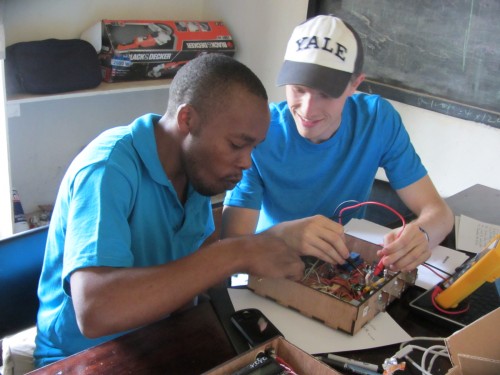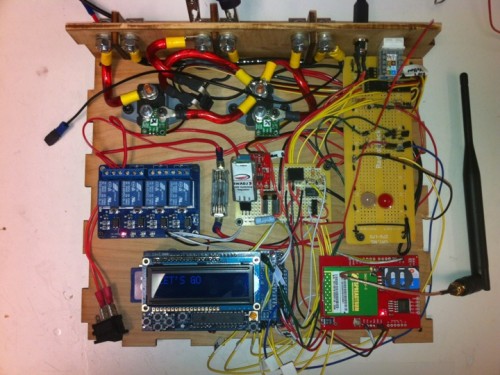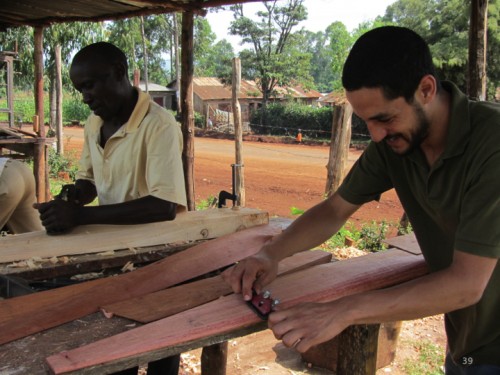
Joseph Belter GRD’14 and Harrison Leaf GRD’12 met as students in the Yale mechanical engineering course “Appropriate technology in the Developing World.” At that point, Leaf was in the process of co-founding Access:Energy, a group that would help local Kenyan craftsmen manufacture wind turbines from recycled materials, and Belter was taking the course due to his interest in the implementation of technology in the developing world. As the course progressed both students discussed Access:Energy, which led to a collaboration that resulted in designing the Bit-Harvesters system.
The Bit-Harvesters system is a short message service-enabled monitoring device that is attached to turbine installations. It sends hourly updates about the power generated by the turbines, the amount of electricity consumed and the wind speed and direction. “The actual technology is not groundbreaking. It is the putting together of everything, in a place that has limited communication capabilities, and then implementing it that makes this project special,” said
Belter.

Belter was able to go to Kenya for two weeks during the summer of 2012 to install devices onto three turbines. “My main purpose for visiting Kenya was to not only implement the technology in a place that had very little resources but to also figure out a way to teach people the necessary skills to develop these resources in the region,” said Belter. The Bit-Harvesters concept was taken up by a local, Peter Mbari, and has been further developed so that a final product is being produced from the prototype.
During his visit in Kenya, Joseph noticed how the device enabled the locals to understand their actual energy consumption as they used different appliances. This project has shown that it is possible to implement technologies from developed countries in a method that can be utilized sustainably in the developing world.

About the Author: Kamela Al Qubaisi ’16 is a prospective MB&B major in Saybrook College.
Acknowledgements: The author would like to thank Joseph Belter for his time.
